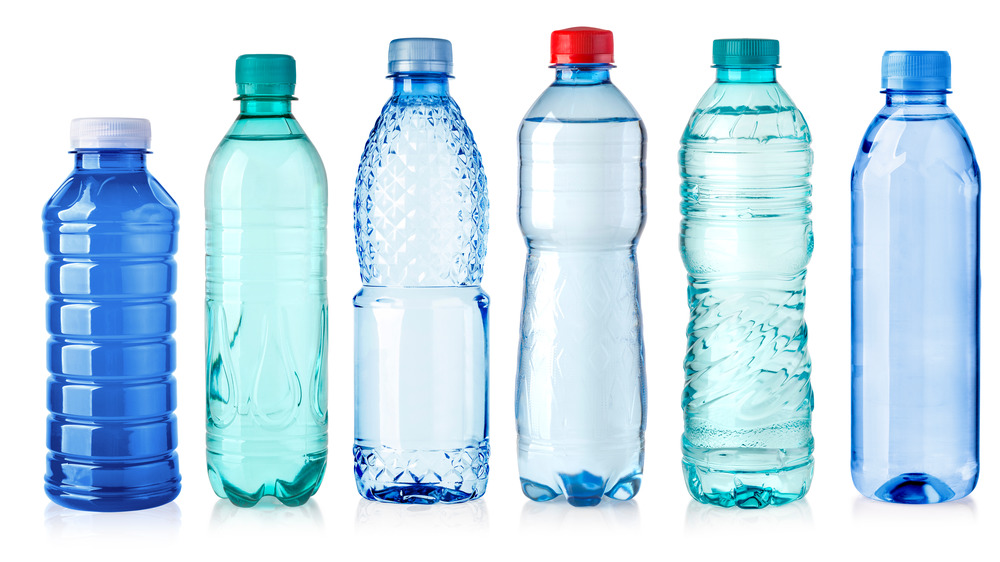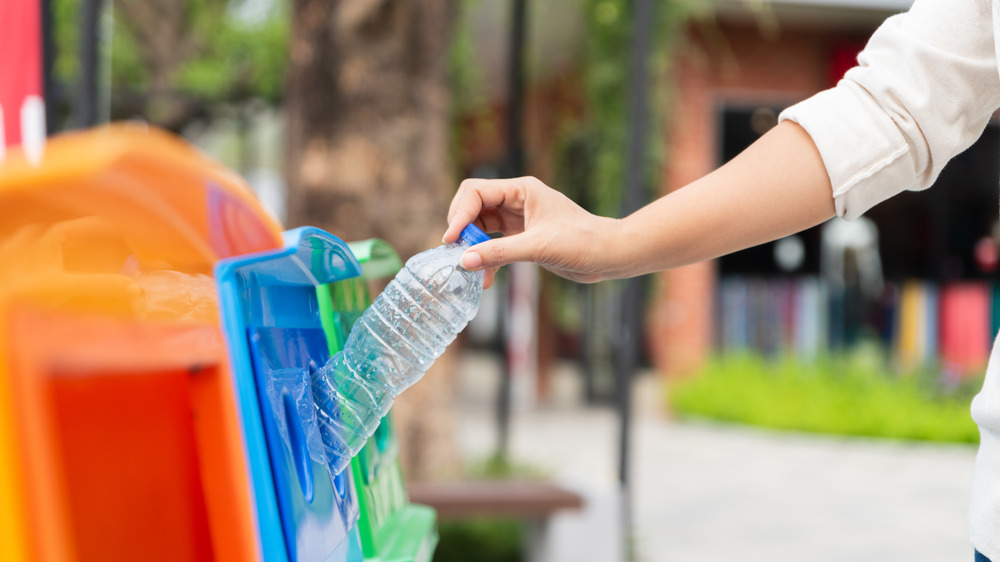Think Twice Before Reusing A Plastic Water Bottle. Here's Why
It's so tempting to reuse those plastic water bottles. After all, it seems like a smart option for both our health (drinking more water = good), our wallets, and the environment, fitting nicely into the 'reduce, reuse, and recycle!' mantra. But there are reasons to think twice about this common practice.
First of all, plastic water bottles are not designed or manufactured to be reused. They are made using single-use plastics, which are the same class of plastics that are used in the packaging of fresh meat and produce, like the chicken breasts or mushrooms you bought last week. They are designed to be used once and then discarded — or, in the case of water bottles, recycled (via National Geographic).
So what happens when they're reused? Well, if you refill and sip out of the bottle for a day or two after opening it, you're probably safe. But if you're reusing it over and over again over several days or weeks, the risk of problems rises.
Philip Tierno, Ph.D., clinical professor of microbiology and pathology at NYU Langone and author of First, Wear a Mask: A Doctor's Guide to Reducing Infection During the Pandemic and Beyond, told LiveStrong, "After two days or so, colonies of microorganisms will form a biofilm, similar to the way barnacles adhere to a boat."
Plastic water bottles are designed to be single-use
Plastic water bottles, especially in warm temperatures, are ideal breeding grounds for many kinds of bacteria and fungi, some of which could be pathogenic. An August 2018 study published in the Journal of Exercise Physiology compared 30 new water bottles, and 30 reused water bottles, and found that 90 percent of the used bottles contained pathogens, including E. coli. Most of the bacteria came, predictably, from the mouths and hands of the bottles' owners. Yuck. And if the bottles are damaged, or exposed to sunlight or heat (which of course is very likely once they're opened) the chance of bacterial growth increases.
Another concern is toxic chemical leach from the plastic bottle into the water, including the shedding of plastic microparticles. While data indicates that chemical leach seems to be minimal unless the bottle is exposed to high temperatures (for example, after sitting in a hot car), the chance that the water will be swimming with microplastics is more definite. One study out of the State University of New York in Fredonia found that a whopping 93 percent of bottled water samples were found to have some contamination from microplastics (via US News & World Report).
Overall, though, reusing your plastic water bottle once or twice shortly after opening it is unlikely to cause any problems. As Dr. Tierno suggests, "You can refill the bottle as often as you like for 24 hours, but then discard it."


